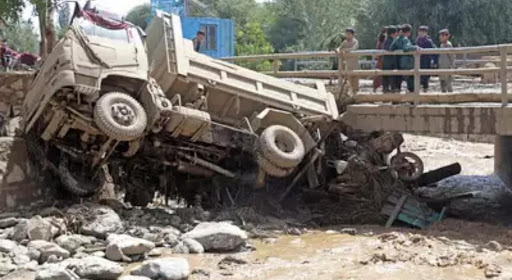Shagun Roy, Pune
The recent heavy flooding in Afghanistan caused by seasonal rains has resulted in significant loss of life and damage. According to Shafiullah Rahimi, the spokesperson appointed by the ruling Taliban for Afghanistan’s State Ministry for Natural Disaster Management, at least 31 people lost their lives, 74 were injured, and 41 others were reported missing.
The flash floods affected various regions, including the capital city, Kabul, as well as the provinces of Maidan Wardak and Ghazni. The worst-hit areas were reported to be west Kabul and Maidan Wardak, where the majority of the casualties occurred.
According to a statement from the provincial governor’s office, hundreds of homes have been damaged or completely destroyed, and it is feared that the missing individuals may be trapped under the debris of collapsed houses.
The statement further mentioned that extensive agricultural land covering hundreds of square miles has been washed away and ruined, while the floods have also led to the closure of the highway connecting Kabul to the central Bamiyan province.
Meanwhile, neighboring Pakistan also experienced the impact of heavy rains and landslides, which claimed the lives of 13 people.
According to a police officer named Raja Mirza Hassan, a massive landslide in the Skardu area of Gilgit Baltistan resulted in the death of four family members who were in their car at the time of the incident.
Taimur Khan, the spokesperson for the provincial disaster management authority, reported that heavy rainfall and thunderstorms caused significant damage to at least 74 houses in the Khyber Pakhtunkhwa province.
According to the national disaster management authority, since the onset of the monsoon season on June 25, the country has experienced a total of 101 fatalities, which include 16 women and 42 children. Due to the heavy rainfall causing flash floods in the mountainous region, the provincial authorities have declared a state of emergency in the Chitral district.
The situation is likely to require immediate relief and rescue efforts to address the urgent needs of the affected communities and mitigate further damage
